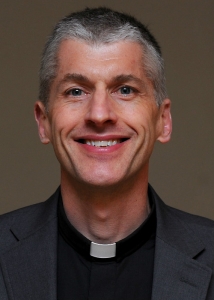 By Rev. Craig Pederson
By Rev. Craig Pederson
I have a LinkedIn account, as many people do. I can’t remember when and why I set it up, but there must have been an invitation of some kind, or an article I wanted to read, that required me to set up a user profile.
Now, I’ve given LinkedIn enough information about myself that it really knows me. Like a personal coach or a good friend, LinkedIn sends updates to my email inbox every couple of weeks suggesting new connections I may want to make – connections that may be of mutual benefit to me and to the “connectee”.
Recently I received an update that said, “Do you know Ann Svennungsen? You have 49 connections in common!” Why yes, in fact, I do know her! That same update also suggested I may want to connect with some guy named John Hulden, and someone else named Jeni Huff. … How amazing, I just happen to know them too (both being dear colleagues in the synod office)!
“It is … essential that Christians and Muslims endeavor to establish relationships of trust, integrity and a shared vision of their place in the rich interreligious landscape.”
Social media and targeted applications provide almost limitless platforms for us to develop our professional and personal relationships. The algorithms that drive these platforms are powerful and mysterious in how well they get to “know” us. (For example, why are the shoes I looked up online last night now appearing on the newspaper web page I’m reading today?)
WITHOUT THE USE OF algorithms, but with a genuine desire to foster relationship and understanding, the 2017 Synod Assembly resolved to encourage congregations to explore connections with a specific population in their communities: their Muslim neighbors. The resolution was rooted in the acknowledgement that Muslims face increasing challenges, fears, and even acts of violence resulting from sometimes misinformed public rhetoric.
The resolution lifted up the work of the ELCA Consultative Panel on Christian-Muslim Relations, which stated, “It is … essential that Christians and Muslims endeavor to establish relationships of trust, integrity and a shared vision of their place in the rich interreligious landscape.” One of the mutual benefits of these relationships is that they can help break down negative stereotypes that don’t represent the majority of common believers who are trying to be faithful to their understanding of God’s will in their lives.
“The synod’s resolution was rooted in the acknowledgement that Muslims face increasing challenges, fears, and even acts of violence resulting from sometimes misinformed public rhetoric.”
So what are some of the ways our congregations might connect with Muslims? The synod’s resolution suggests that we:
- sponsor one or more educational sessions on Islam or on interrupting religious bias, or partner with another congregation in doing so,
- reach out to build local relationships with a non-Christian place of worship or another religious institution, particularly any being targeted for hostile words and actions,
- write and endorse a statement condemning hostility in the name of religion and expressing solidarity with members of other faith traditions,
- initiate and engage in inter-religious service projects which include spiritual reflection and discussion, and/or
- engage in advocacy actions, such as writing to school officials requesting training for faculty and staff in understanding Islam and dealing with religious diversity; writing letters to the editor or contacting legislators advocating for protection of religious minorities; advocating for respect and accommodation in individual workplaces for religious diversity.
The resolution also called for a synod task force that could make resources available to congregations to assist in this important work. This task force has begun meeting and will be providing resources in the months to come.
Some connections in our lives come naturally, even effortlessly – like clicking a link in an email. Others take time, intention, and commitment. Jesus made connections with those who were often blamed for demanding too much of others: the sick, the poor, the disabled, the widow, the children, the Gentiles. In the year to come, let us model Christ’s humility and openness by getting know our Muslim neighbors.
